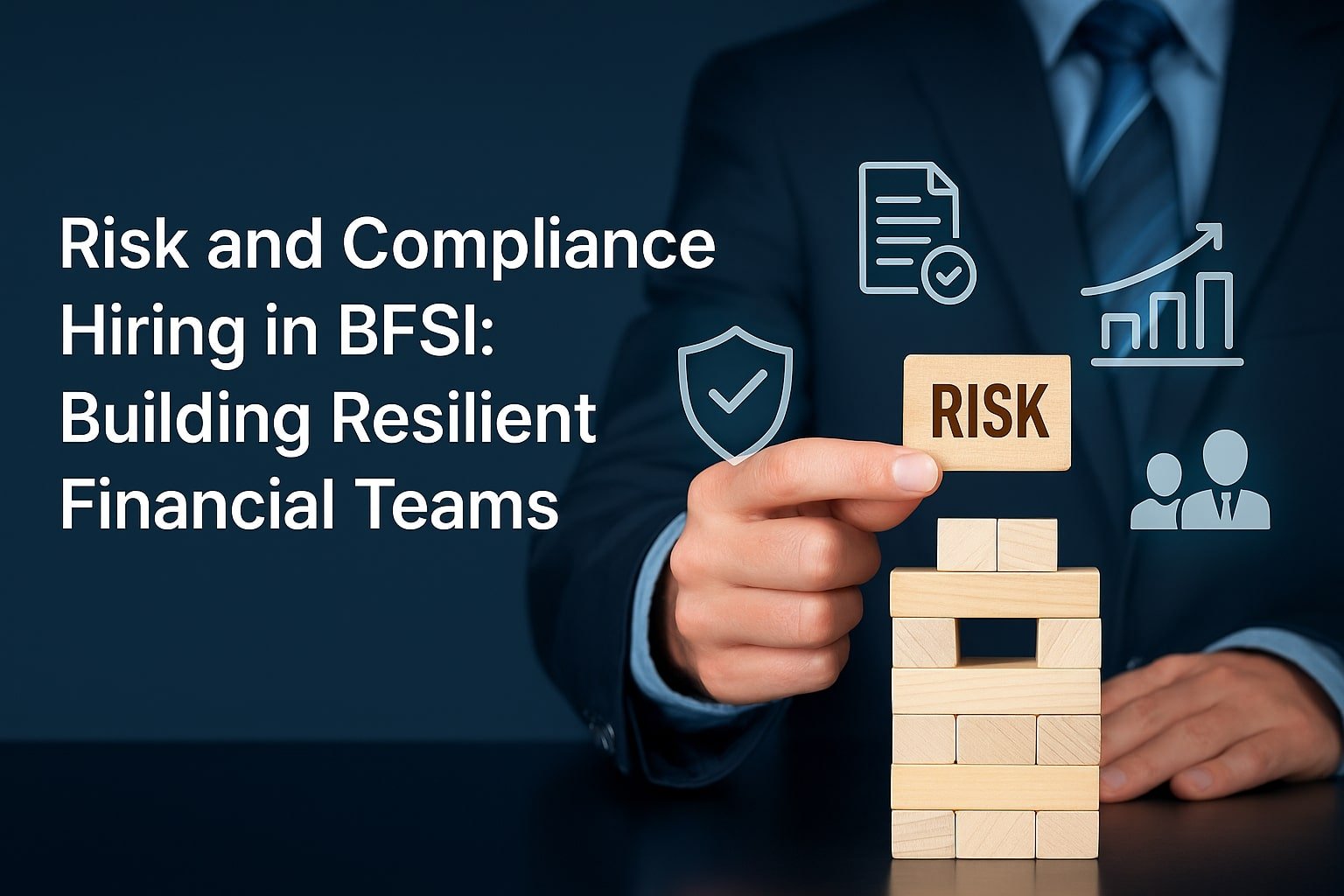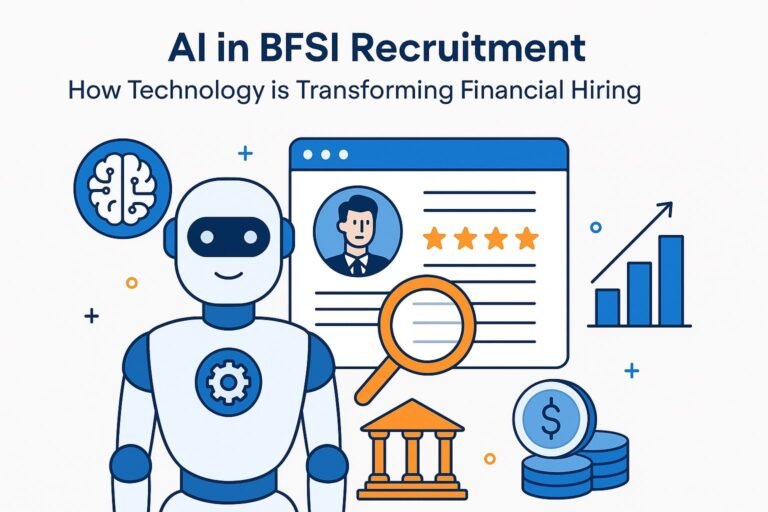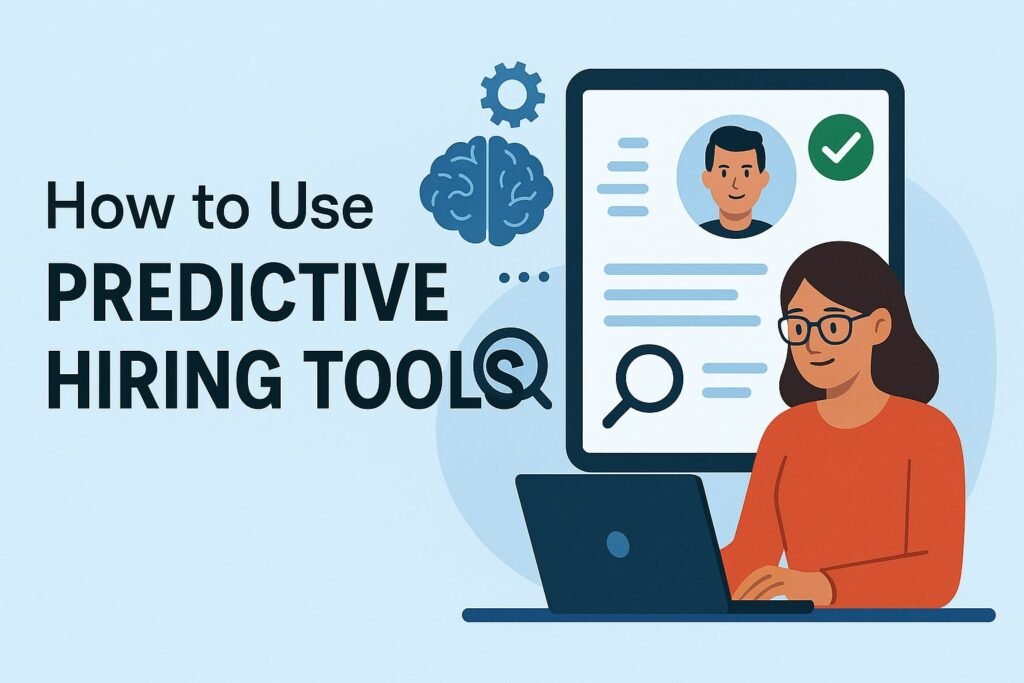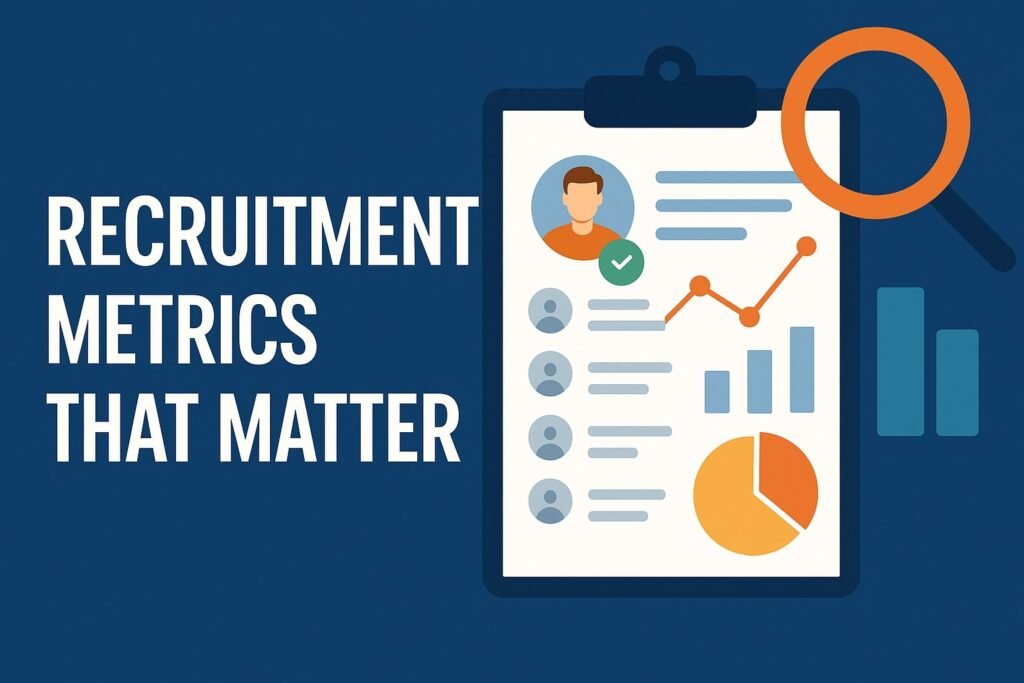Risk and Compliance Hiring in BFSI: Building Resilient Financial Teams
Introduction
The BFSI sector (banking, financial services, and insurance) in India is experiencing a sharp rise in regulatory scrutiny, driven by stricter anti-money laundering (AML) rules, digital fraud risks, and evolving global standards. As a result, demand for skilled risk and compliance professionals is at an all-time high.
Yet hiring in this space is challenging: talent is scarce, regulations are complex, and the cost of a bad hire can be catastrophic. Building resilient financial risk and compliance teams is no longer a nice-to-have — it’s a strategic necessity. In this article, we explore practical strategies to identify, attract, and retain top risk and compliance talent for your BFSI organization in 2024 and beyond.
1. Why Risk and Compliance Roles Are Critical
Risk and compliance functions protect your organization from:
- financial penalties
- reputational damage
- fraud and misconduct
- regulatory breaches
They safeguard trust among investors, customers, and regulators, ensuring you operate ethically and sustainably. As financial crime evolves, the stakes for hiring the right compliance talent have never been higher.
2. In-Demand Risk & Compliance Profiles in BFSI
Top roles in demand today include:
- AML/KYC analysts
- risk managers
- compliance officers
- internal audit specialists
- fraud investigators
- regulatory reporting specialists
Key skills recruiters look for:
- knowledge of RBI, SEBI, and IRDAI guidelines
- forensic investigation
- transaction monitoring systems
- regulatory reporting frameworks
- advanced data analytics for risk detection
3. Sourcing Strategies for Risk and Compliance Talent
The best candidates are often passive — not actively applying. Proactive sourcing is essential:
- tap alumni networks of top audit and accounting firms
- build relationships with CFA, FRM, and CFE professionals
- partner with risk-focused professional associations
- attend compliance conferences and forums
- build talent communities through newsletters and events
These strategies build a consistent pool of pre-engaged, trust-oriented talent.
4. Building Robust Assessment Processes
Risk and compliance roles need thorough, defensible assessments to avoid costly hiring mistakes. Consider:
- technical interviews covering regulations, case law, and compliance frameworks
- scenario-based testing for fraud detection and ethical decision-making
- behavioral interviews to validate integrity and stakeholder management skills
- background and reference checks with a focus on ethical track record
High standards protect your organization’s compliance posture and safeguard client trust.
5. Emphasize Employer Branding for Risk & Compliance
Risk professionals want to work with employers who value integrity, transparency, and ethics. You can strengthen your employer brand by:
- showcasing your compliance culture
- highlighting recent risk or fraud prevention successes
- demonstrating a supportive environment for whistleblowers
- sharing employee stories from your compliance teams
Candidates want to see that risk and compliance is more than a check-box — it’s a cultural priority.
6. Compensation & Career Growth
Given their specialized skills, risk and compliance professionals expect:
- above-average compensation
- clear career growth pathways
- professional certification support (FRM, CAMS, CFE)
- opportunities to work on strategic projects
Clearly communicating these elements reduces offer drop-offs and improves retention.
7. Partner with Domain-Specialized Recruiters
Generalist recruiters often struggle to source and assess risk talent effectively. By partnering with domain-focused BFSI recruitment specialists, you gain:
- access to pre-vetted passive talent
- deep understanding of regulatory needs
- faster, more compliant hiring
- role-specific assessment frameworks
Specialist recruiters can act as strategic advisors for risk and compliance workforce planning.
8. Supporting Onboarding and Retention
Once you hire risk and compliance talent, support their success by:
- providing robust onboarding around systems and regulatory frameworks
- setting up mentorship or buddy programs
- offering regular compliance training refreshers
- recognizing contributions to risk mitigation and ethical culture
Strong onboarding and development pathways encourage loyalty and reduce early attrition.
Conclusion
Risk and compliance teams are the backbone of a resilient financial organization. In a sector where trust, ethics, and regulation matter more than ever, attracting and retaining the best risk talent is a strategic advantage.
At Valorega TalentEdge, we combine BFSI domain expertise, AI-enabled talent screening, and robust ethics-first processes to help you build high-performing risk and compliance teams with confidence.






